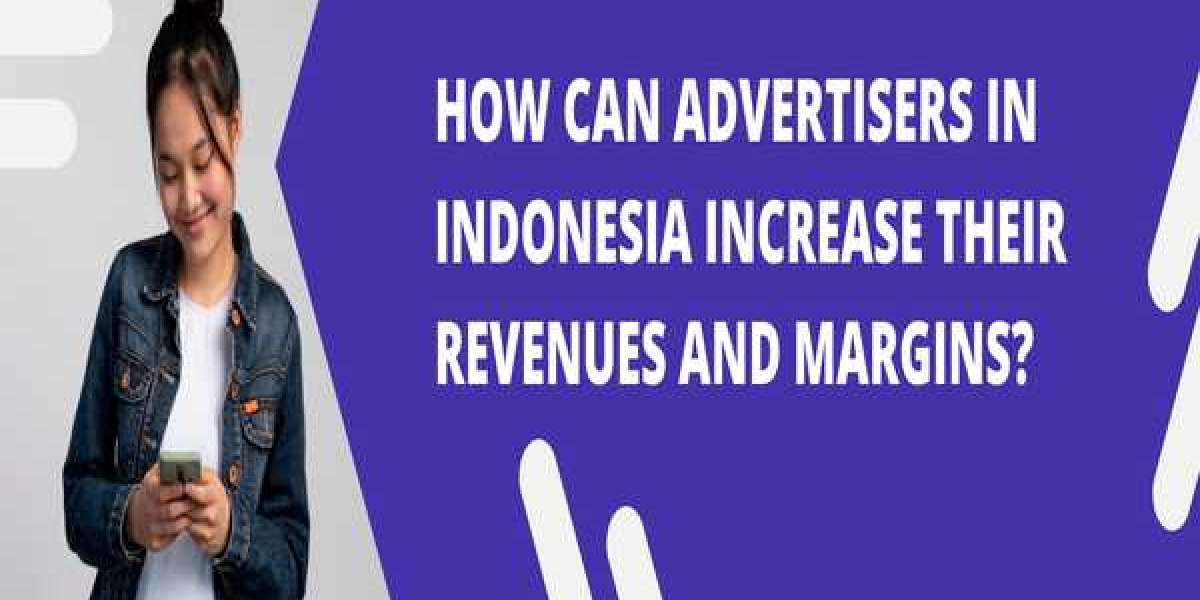The Indonesian digital advertising market is poised for substantial growth, with projections estimating it will reach USD 4.04 billion by 2029, up from USD 3.05 billion in 2024 (Source: Mordor Intelligence). This growth is largely driven by the increasing cost-efficiency and precise targeting capabilities of digital platforms, allowing businesses to scale customer acquisition and diversify revenue streams. Indonesian advertisers are shifting towards online search ads, digital banners, and video ads, which offer flexibility, high engagement, and measurable impact, enhancing advertisers' ability to engage diverse audiences effectively. Indonesia’s population, estimated to be over 270 million (Source: Statista), provides a massive customer base for advertisers to reach. Additionally, Indonesia has a young and tech-savvy population, making it an attractive market for digital advertising.
Social media ads, known for their high engagement, and seamless integration into users' feeds, are adding a dynamic edge to the market, particularly during high-traffic seasons and campaigns. Indonesia's rapid economic expansion and evolving consumer behaviors, including the widespread adoption of online shopping, have created a fertile ground for digital marketing to thrive. This context presents a major opportunity for agencies to strategically enhance revenues and increase profit margins, tapping into vibrant digital advertising.
However, achieving sustainable revenue and margin growth in Indonesia’s competitive ad sector demands a targeted approach. Advertisers are adopting innovative digital strategies to maximize their ROI and elevate their brand positioning.
Platforms like moLotus, Google Ads, Meta Ads, and local platforms such as Tokopedia and Shopee are reshaping how advertisers connect with Indonesian consumers. These platforms allow for more granular targeting, real-time adjustments, and the ability to reach mobile-centric audiences effectively.
Research shows that the breakthrough moLotus mobile video customer interaction platform is set to redefine Indonesia's digital advertising landscape with its proven GSM-based mobile advertising platform that delivers high-impact 40-second mobile videos directly to all mobile phones requiring no app downloads or data plans. Through partnerships with Indonesian telecom giants like Telkomsel and Indosat Ooredoo Hutchinson(IOH), moLotus is helping Indonesian advertisers connect with over 250 million mobile subscribers, unlocking nationwide reach and big revenue opportunities.
The Indonesian market, characterized by one of Southeast Asia’s youngest and most digitally engaged populations, has over 73% of the population actively using the internet—mostly via smartphones. As a result, advertisers must prioritize revenue-generating ad strategies that not only expand reach but also boost profit margins in a competitive landscape. From leveraging advanced mobile ad platforms like moLotus to harnessing the power of Google’s search algorithms and Meta’s expansive social media networks, advertisers can drive customer acquisition and loyalty with tailored impactful campaigns.
This article provides actionable strategies and platform-specific insights for advertisers seeking to thrive in Indonesia’s dynamic digital ad market, outlining how they can maximize revenue growth and improve profitability by making the most of the digital marketing tools at their possession.
Embrace Mobile Advertising
Mobile advertising has emerged as an essential strategy in Indonesia, a country where smartphone usage has skyrocketed, with 355.5 million mobile connections—well above the nation’s population. As one of the largest smartphone markets in the world, following only China, India, and the United States, Indonesia presents an unparalleled opportunity for advertisers to engage consumers who are increasingly spending time on mobile devices. In this fast-growing mobile landscape, advertisers are leveraging platforms like moLotus, Google Ads, Meta Ads, Tokopedia, and Shopee to capture attention, drive engagement, and boost revenues.
moLotus is revolutionizing mobile advertising in Indonesia by providing direct-to-inbox mobile video messages that reach consumers without requiring data or app downloads. Unlike traditional banner ads or pop-ups, moLotus allows advertisers to deliver highly personalized, interactive messages directly to users’ mobile inboxes, creating a seamless, engaging experience. Indonesian brands can leverage moLotus to create engaging holiday promotions, product demos, or limited-time offers that recipients can easily act upon, enhancing both click-through and conversion rates. By making customer interaction effortless, moLotus helps brands build customer loyalty and maximize their returns.
Meta Ads remain highly effective in Indonesia, where Facebook and Instagram reach millions of users, making them ideal for mobile advertising. With powerful targeting by interests, demographics, and location, advertisers can reach specific audiences, from Jakarta’s young professionals to rural families.
Instagram’s Stories and Reels enable brands to create visually engaging ads that seamlessly blend into users’ feeds. For instance, an Indonesian fashion brand might use Reels to showcase festive outfits for Eid, appealing to style-conscious users. Additionally, Facebook Marketplace allows businesses to reach users actively searching for products, creating real-time sales opportunities within the platform.
Google Ads offers Indonesian advertisers powerful mobile advertising options, from search ads targeting active shoppers to display and video ads optimized for mobile. With the Google Display Network, ads appear across millions of apps and sites, reaching users browsing for shopping deals, travel info, or local events. Google’s precise targeting makes campaigns highly relevant and cost-effective. YouTube Ads are also impactful in Indonesia, where video consumption is high. Advertisers can use skippable or non-skippable ads with localized content to engage audiences.
Tokopedia and Shopee are dominant players in Indonesia’s e-commerce landscape, with millions of active users browsing, shopping, and engaging with content on mobile apps daily. These platforms offer advertisers the chance to reach consumers who are already primed to make purchases, making them powerful channels for driving sales.
Use the Power of Personalization
In the Indonesian digital advertising landscape, personalization is proving essential for brands aiming to strengthen customer relationships and boost revenue. Modern consumers, particularly Millennials and Gen Z, expect personalized experiences that cater to their unique preferences. Personalization involves more than using a customer’s name; it includes relevant product recommendations, tailored offers, and experiences that resonate on an individual level.
Studies underline the link between personalization and customer loyalty. For instance, a study by SendGrid reveals that 60% of consumers are more likely to become repeat buyers after a personalized experience, while generic interactions often deter repeat purchases.
To meet this demand, advertisers in Indonesia are turning to advanced tools and platforms that enable deeper personalization. Traditionally, methods like email marketing and social media ads were used to add a personal touch but often fell short of true personalization. For instance, email marketing can feel impersonal if not carefully targeted, while social media ads may struggle with precise segmentation.
Platforms like moLotus have revolutionized personalization in mobile advertising. As a GSM-based mobile advertising platform, moLotus enables advertisers, brands and resellers to deliver personalized multimedia ads using customer data, such as names, preferences, and past interactions. With its automation capabilities, moLotus allows businesses to reach segmented audiences at scale without spamming and with no need for an app.
Meta Ads (formerly Facebook Ads) also enable personalization by leveraging user demographics, interests, and online behaviors to deliver precise ad campaigns. Facebook Dynamic Ads allow brands to automatically showcase products users have previously shown interest in, boosting conversion rates and creating a more seamless, targeted ad experience. These tools help brands in Indonesia create meaningful, personalized interactions that build loyalty and drive repeat sales.
Boost Lead Generation
For advertisers in Indonesia, lead generation is key to guiding potential customers from initial interest to conversion. By capturing leads, brands and advertisers can create a pipeline of prospects, nurturing them until they're ready to make a purchase. This not only sustains revenue growth but also strengthens long-term customer relationships. However, generating and managing quality leads can be challenging; in fact, around 60% of advertisers identify lead generation as one of their primary challenges.
With digital and mobile marketing on the rise, Indonesian brands are discovering innovative, cost-effective ways to boost lead generation. Mobile-based lead campaigns, in particular, are highly effective at quickly capturing customer attention and encouraging contact-sharing, often resulting in immediate purchases. Platforms like Facebook Ads, moLotus and Google Ads have become essential tools for lead generation.
Facebook Ads provides businesses with Lead Ads, which streamline the lead capture process by allowing users to submit information without leaving the platform, thus boosting conversion rates. This is especially effective in Indonesia, where social media engagement is high, as users are more inclined to engage with ads directly on their preferred social platforms. Google Search Ads similarly excel in lead generation, as they allow businesses to reach users actively searching for relevant products or services, resulting in higher-intent leads that are more likely to convert.
In Indonesia, the moLotus mobile lead generation platform stands out by enabling advertisers with unique lead generation campaigns that utilize multimedia formats, including videos, as lead magnets that provide value and prompt customers to share contact information like name and address. Beyond capturing leads, moLotus also excels in lead conversion, with tailored nurturing campaigns that turn leads into actual sales, making it a highly effective tool for Indonesian advertisers.
For Indonesian advertisers, WhatsApp is a powerful lead generation tool, enabling direct, personalized interactions that capture high-quality leads. Through Click-to-WhatsApp ads, automated follow-ups, and broadcast messaging, brands can engage audiences effectively, nurture customer relationships, and drive conversions in a familiar mobile environment.
Strategic Upselling and Cross-selling
For Indonesian advertisers, strategic upselling and cross-selling can significantly enhance revenue and profitability, while simultaneously improving the overall customer experience. Cross-selling involves suggesting complementary products to existing customers, while upselling encourages them to opt for a more expensive or upgraded version of the product they are considering. When executed effectively, these tactics not only increase sales but also foster stronger relationships with customers, leading to higher lifetime value.
A research by Bain Company points out that brands that adopt upselling and cross-selling strategies can see a substantial boost in customer spending. This approach also helps identify and target the most receptive customers, increasing the overall profitability of the business. With evolving consumer preferences and continuous product innovation, new opportunities for upselling and cross-selling are constantly emerging.
In Indonesia’s fast-evolving digital landscape, agencies and advertisers can leverage mobile advertising platforms like moLotus to maximize the impact of these strategies. moLotus allows brands to run automated, personalized campaigns at scale, making it ideal for upselling and cross-selling to large customer databases. Brands can use moLotus to send personalized mobile video messages featuring related products to customers who have recently made a purchase. These targeted messages can suggest complementary items, enhancing the overall shopping experience and increasing sales.
The impact of upselling and cross-selling is evident in various industries across Indonesia. In the financial sector, banks can use moLotus to run targeted upselling campaigns, such as encouraging customers to upgrade from a basic credit card to a premium version offering higher cashback rates and exclusive benefits. By clearly communicating the advantages of these upgraded products, banks can not only increase customer satisfaction but also improve profit margins.
For Indonesian advertisers, leveraging these strategies through mobile advertising platforms like moLotus can unlock significant revenue opportunities and drive higher engagement, ultimately strengthening brand loyalty and maximizing profitability.
Platforms like WhatsApp, Facebook Ads, Instagram, Google Ads, and TikTok offer diverse and effective opportunities for upselling and cross-selling. By utilizing these platforms’ targeting capabilities and engaging formats, businesses in Indonesia can increase their average order value, enhance the customer experience, and drive higher profitability.
Enhance Customer Interaction
For ad agencies in Indonesia, every interaction between a brand and its customers represents a valuable opportunity to build stronger relationships, foster loyalty, and ultimately drive higher profit margins. However, despite the growing frequency of these touchpoints, many businesses still struggle to fully capitalize on them. This underutilization is often a result of not embracing innovative marketing technologies that can foster deeper customer engagement.
Ad agencies play a critical role in helping brands unlock the potential of these interactions. By utilizing advanced tools like moLotus, agencies can create interactive campaigns that connect brands with consumers opening up possibilities for revenue generation. moLotus offers multiple customer interaction options, including mgrams, SMS, voice calls, and links, enabling brands to reach customers on their preferred devices, regardless of phone type or model. This flexibility increases the likelihood of positive responses and more engaging customer experiences.
One of the standout features of moLotus is its rich media formats, such as high quality videos, slideshows, dynamic brochures, etc.. For example, an agency could help a retail brand in Jakarta create a compelling video campaign highlighting its latest fashion collection, with a call to action prompting viewers to explore the collection online. The use of rich media makes the campaign more engaging and significantly improves customer interaction.
Additionally, moLotus allows agencies to design interactive storyboards that integrate visuals, voice-overs, and music, creating an immersive experience that encourages two-way communication.
Beyond moLotus, other platforms like Facebook Ads and Google Ads also offer some interactive features that ad agencies can leverage to enhance brand-customer interactions. Facebook Ads, for example, provide interactive tools such as polls and carousel ads, allowing users to swipe through multiple images or videos, which not only boosts engagement but also helps gather valuable customer insights for future campaigns.
Google Ads enhances customer interactions through responsive search ads, which adapt based on user queries, and ad extensions that include interactive elements like call buttons, location information, and additional links.
Conclusion
Increasing revenue and profit margins in Indonesia’s advertising sector relies on key strategies: embracing mobile-first platforms, personalizing communications, enhancing customer interaction, and leveraging upselling and cross-selling. The future of Indonesian advertising looks promising, with growing trends in mobile and social media, the rise of potential new platforms, and the transformative impact of digitalization. Advertisers are encouraged to adopt these tools and strategies to boost profitability and expand their brand reach in the evolving digital landscape.



